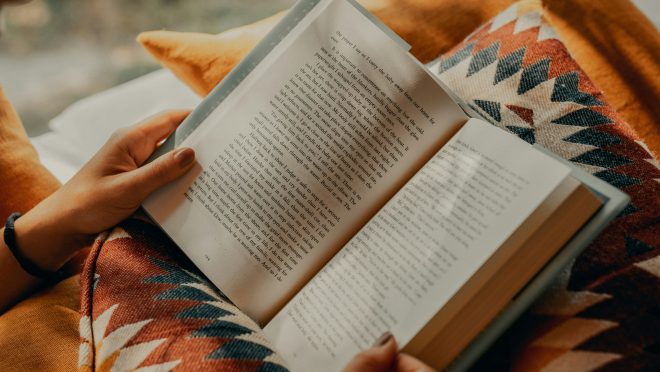The unexpected joys of reading fiction!
The unexpected joys of reading fiction!

In a world where every day is a barrage of deadlines and decisions, finding solace in the pages of a good novel offers a welcome escape. Here, dragons can sing for you or the Prince Charming’s come to your rescue in shining armour, or even there could be superwomen with a skill of mind reading abilities.
Well, yeah in fiction anything is possible starting from having a pet which can talk and change its physical appearance, to witnessing ancient wars of the dominating era. As Albert Einstein said, “Imagination is better than Knowledge” and in fiction, this rings true.
When we pick up a book, turn on the TV or watch a movie we are carried away down the current of the story into a world of imagination and when we land on a shore that is both new and familiar.
Researchers in psychology, neuroscience and biology are finally starting to gain quantifiable scientific evidence, that stories have the unique ability to change a person’s point of view, also stories shape culture.
In fiction, there are ideas of class, gender, marriage and then many ideologies which held fast for centuries. So, dear readers, let’s take you on a tour of understanding the unseen joys of fiction.
On a Tedtalk of Elizabeth Chapin, she said, “Growing up I read fantasy novels and those books made me ask questions, stories made me realise that with the right question, you could imagine, create and understand anything.” This is what fantasy does. It helps us grow and move forward.
Imagine reading a mystery novel where with every turn of pages you get a hint of solving the mystery which leads you to unravel the way to disclose what is really going on! Sometimes it leads you to daunting paths urging you to push forward despite the heightened tensions and intense moments of twists that shake you up along with unexpected surprises.
In this timeline, you are playing a big part in witnessing and sensing the whole scenario in detail. This is the biggest weapon of a reader, to get the feeling of being in another’s shoes.
Reading fiction has the magic ability to connect the most unexpected dots. It is like playing six degrees of separation with characters from different genres. Fictions are bridges that connect you with an imaginary world which gives you an alternative plot twist of what ifs!
Ever felt like noisy voices are judging you while reading a book? This always happens to me, when I can relate to the characters that have been portrayed. Whenever I read a book, I always think of myself as a main character or a third-party observer.
This is what reading fiction does to you; bring the ink on paper characters to full-fledged flesh and blood companions. Help you imagine the character with vivid descriptive writing: characters come to life.
Reading fiction is like playing a game of dodgeball where you have just figured out all the surprises, then BAM! The author throws curveballs at you that take you by surprise and spinning you like a cat chasing its own tale. You delve into solving the puzzles until it shows its turn.
Raymond Mar, a psychologist, discovered something amazing after analysing 86 brain scan studies: The same part of our brain that lights up when we read stories also lights up when we socialise.
Basically, reading a story is like having discussions with the characters in our heads. It is more than simply words on a page. So, when you indulge yourself in a good book, you are not just reading; you are socialising with characters too.
My last read was “Kafka on the Shore” by Haruki Murakami, while reading it I went through on continuous spectrum of emotions. Laughter, cry, love, friendship, detachments everything was part of the journey and I get the essence of each.
Murakami discussed his writing approach in a newspaper published on 18 March, with the Japanese daily Asahi Shimbun. Like jazz artists, he likes to leave gaps in his narratives much as they would omit notes within a chord.
He also mentioned, that he likes things that are like mandalas, where one story leads to another through a mysterious tunnel.
The whole process of reading fiction enlightens our minds about new environments across the world. To become a writer, there is no alternative to reading and with fiction, the scene is even brighter.


